Books on consciousness
A list of books relating to the hard problem of consciousness. Regularly updated cos I keep finding new stuff all the time.
A list of books relating to the hard problem of consciousness. Regularly updated cos I keep finding new stuff all the time.
1970s
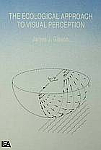 James J. Gibson
James J. Gibson
The Ecological Approach to Visual Perception
(Houghton Mifflin 1979)
A book about how we see. Gibson suggests that natural vision depends on the eyes in the head on a body supported by the ground, the brain being only the central organ of a complete visual system. When no constraints are put on the visual system, people look around, walk up to something interesting and move around it so as to see it from all sides, and go from one vista to another. That is natural vision – and what this book is about. See Google | Amazon
 Richard Rorty
Richard Rorty
Philosophy and the Mirror of Nature
(Princeton 1979)
Rorty argues that, beginning in the 17th century, philosophers developed an unhealthy obsession with the notion of representation: comparing the mind to a mirror that reflects reality. This book is a powerful critique of this imagery and the tradition of thought that it spawned. See Google
 John Perry
John Perry
A Dialogue on Personal Identity and Immortality
(Hackett 1978)
Perry’s excellent dialogue makes a complicated topic stimulating and accessible without any sacrifice of accuracy or thoroughness. Professionals will appreciate the work’s command of the issues while students will find that it excites interest and imagination. See Hackett | Amazon | Google | Free to borrow at the Internet Archive
 Daniel C. Dennett
Daniel C. Dennett
Brainstorms: Philosophical Essays on Mind and Psychology
(Bradford Books 1978)
This collection of 17 of Dennett’s essays offers a comprehensive theory of mind, encompassing traditional issues of consciousness and free will. Using careful arguments and ingenious thought-experiments, Dennett exposes familiar preconceptions and hobbling institutions. The essays are grouped into four sections: Intentional Explanation and Attributions of Mentality, The Nature of Theory in Psychology, Objects of Consciousness and the Nature of Experience, and Free Will and Personhood. See MIT (1981 edition) | Amazon | Google
 Ludwig Wittgenstein
Ludwig Wittgenstein
Remarks on Colour
(Univ. California Press 1978)
Written in the last eighteen months of his life, this is one of the few documents which shows Wittgenstein concentratedly at work on a single philosophical issue. The principal theme is the features of different colours, of different kinds of colour (metallic colour, the colours of flames, etc.) and of luminosity – a theme which Wittgenstein treats in such a way as to destroy the traditional idea that colour is a simple and logically uniform kind of thing. See UC Press | Google | Amazon
 Karl Popper & John Eccles
Karl Popper & John Eccles
The Self and Its Brain: An Argument for Interactionism
(Springer-Verlag 1977)
The relation between body and mind has puzzled mankind for ages. When we are writing a difficult letter, our mind acts upon our body and, through a chain of physical events, upon the mind of the recipient of the letter. We know very little about this ‘interaction’ and while the authors of this book stress that they cannot solve the body-mind problem, they hope to be able to shed new light on it. See Amazon | Google
 Michael J. Morgan
Michael J. Morgan
Molyneux’s Question: Vision, Touch and the Philosophy of Perception
(Cambridge 1977)
If a man born blind were to gain his sight would he be able to identify the objects he saw around him? Would he recognise a cube and a globe on the basis of his earlier tactile experiences alone? This was William Molyneux’s famous question to John Locke and it was much discussed by English and French empiricists in the eighteenth century as part of the controversy over innatism and abstract ideas. Morgan examines the history of this debate and considers why the original question is effectively still unanswered. See Cambridge | Amazon | Google
 Norman Malcolm
Norman Malcolm
Memory and Mind
(Cornell 1977)
 Norman Malcolm
Norman Malcolm
Thought and Knowledge
(Cornell 1977)
Available at the Internet Archive
 Frank Jackson
Frank Jackson
Perception
(Cambridge 1977)
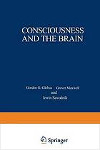 Globus, Maxwell, Savodnik (eds.)
Globus, Maxwell, Savodnik (eds.)
Consciousness and the Brain: a Scientific and Philosophical Inquiry
(Springer 1976)
The relationship of consciousness to brain remains an unsolved problem within both philosophy and science. Philosophers have said some rather naive things by ignoring the extraordinary advances in the neurosciences in the twentieth century. On the other hand, the arrogance of many scientists toward philosophy and their faith in the scientific method is equally naive. See Springer | Amazon | Google
 Wallace I. Matson
Wallace I. Matson
Sentience
(Univ. California Press 1976)
My aim in this book is to persuade you that [body and mind] are indeed “really the same thing” – to return us, so to speak, to archaic innocence in our view of man, but without jettisoning whatever sophistication we may have picked up along the way. That is, I want to present a conceptualized identity theory of mind and body. See Univ. Calif. Press | Google
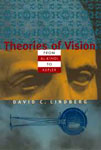 David C. Lindberg
David C. Lindberg
Theories of Vision from Al-Kindi to Kepler
(Univ. Chicago Press 1976)
Kepler’s solution to the problem of vision early in the seventeenth century can be fully grasped only when viewed against the background of ancient, medieval, and Renaissance visual theory. See Univ. Chicago Press | Amazon | Google
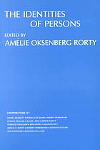 Amélie Oksenberg Rorty (ed.)
Amélie Oksenberg Rorty (ed.)
The Identities of Persons
(Univ. California Press 1976)
In this volume, thirteen philosophers contribute new essays analyzing the criteria for personal identity and their import on ethics and the theory of action: it presents contemporary treatments of the issues discussed in Personal Identity, edited by John Perry (Univ. California Press 1975). See UC Press | Amazon | Google
 Roderick M. Chisholm
Roderick M. Chisholm
Person and Object: A Metaphysical Study
(George Allen & Unwin 1976)
See Amazon
 Julian Jaynes
Julian Jaynes
The Origin of Consciousness in the Breakdown of the Bicameral Mind
(Houghton Mifflin 1976)
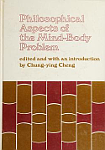 Chung-ying Cheng (ed.)
Chung-ying Cheng (ed.)
Philosophical Aspects of the Mind-Body Problem
(U. Hawaii Press 1975)
Freely available at the Internet Archive | See table of contents at National Library of Australia
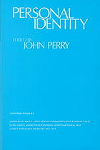 John Perry (ed.)
John Perry (ed.)
Personal Identity
(Univ. California Press 1975)
This unique anthology brings together distinguished past and contemporary philosophers on the topic of personal identity. The first part sets forth attempts by Locke, Quinton, and Grice to analyze personal identity in terms of memory. The eleven other selections are largely critical of this approach and provide alternative perspectives. See Google
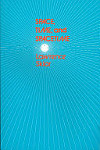 Lawrence Sklar
Lawrence Sklar
Space, Time, and Spacetime
(Univ. California Press 1974)
In this book, Sklar demonstrates the interdependence of science and philosophy by examining a number of crucial problems concerning the nature of space and time—problems that require for their resolution the resources of philosophy and of physics. See UC Press | Google | archive.org (free copy)
 Bernard Williams
Bernard Williams
Problems of the Self: Philosophical Papers 1956-1972
(Cambridge 1973)
A collection of fifteen papers by Bernard Williams, centered on problems of personal identity and extending to related topics in the philosophy of mind and moral philosophy. See Cambridge | Amazon | Google
 J. M. Hinton
J. M. Hinton
Experiences
(Oxford 1973)
 G. J. Whitrow
G. J. Whitrow
What is Time?
(Thames & Hudson 1972)
A good-humored and wide-ranging tour of the thing that clocks keep (more or less). Whitrow discusses how our ideas of time originated, how far they are inborn in plants and animals, how time has been measured and whether it possesses a beginning, a direction, and an end. He contemplates the differences between cyclic, linear, biological, cosmic, and space-time, and provides frequent diversions into topics such as the Mayan calendar, the dances of bees, precognition, and mu-mesons. See Oxford 2003 reprint | Amazon | Google
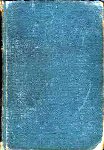 George Pitcher
George Pitcher
A Theory of Perception
(Princeton 1971)
 Don Locke
Don Locke
Memory
(Macmillan 1971)
See Google
 Keith Campbell
Keith Campbell
Body and Mind
(Anchor 1970, 2nd edition 1984)
See Google | Amazon
 C. O. Evans
C. O. Evans
The Subject of Consciousness
(George Allen & Unwin 1970)
In this book I develop a philosophical theory of the self the purpose of which is to explain how it is that our experience of being selves is an experience of being continuous subjects of experience. That is to say, the theory is offered as an explanation of self-awareness. See Google (Routledge 2014 reprint)

The Ecological Approach to Visual Perception
(Houghton Mifflin 1979)

A book about how we see. Gibson suggests that natural vision depends on the eyes in the head on a body supported by the ground, the brain being only the central organ of a complete visual system. When no constraints are put on the visual system, people look around, walk up to something interesting and move around it so as to see it from all sides, and go from one vista to another. That is natural vision – and what this book is about. See Google | Amazon

Philosophy and the Mirror of Nature
(Princeton 1979)

Rorty argues that, beginning in the 17th century, philosophers developed an unhealthy obsession with the notion of representation: comparing the mind to a mirror that reflects reality. This book is a powerful critique of this imagery and the tradition of thought that it spawned. See Google

A Dialogue on Personal Identity and Immortality
(Hackett 1978)

Perry’s excellent dialogue makes a complicated topic stimulating and accessible without any sacrifice of accuracy or thoroughness. Professionals will appreciate the work’s command of the issues while students will find that it excites interest and imagination. See Hackett | Amazon | Google | Free to borrow at the Internet Archive

Brainstorms: Philosophical Essays on Mind and Psychology
(Bradford Books 1978)

This collection of 17 of Dennett’s essays offers a comprehensive theory of mind, encompassing traditional issues of consciousness and free will. Using careful arguments and ingenious thought-experiments, Dennett exposes familiar preconceptions and hobbling institutions. The essays are grouped into four sections: Intentional Explanation and Attributions of Mentality, The Nature of Theory in Psychology, Objects of Consciousness and the Nature of Experience, and Free Will and Personhood. See MIT (1981 edition) | Amazon | Google

Remarks on Colour
(Univ. California Press 1978)
Written in the last eighteen months of his life, this is one of the few documents which shows Wittgenstein concentratedly at work on a single philosophical issue. The principal theme is the features of different colours, of different kinds of colour (metallic colour, the colours of flames, etc.) and of luminosity – a theme which Wittgenstein treats in such a way as to destroy the traditional idea that colour is a simple and logically uniform kind of thing. See UC Press | Google | Amazon

The Self and Its Brain: An Argument for Interactionism
(Springer-Verlag 1977)
The relation between body and mind has puzzled mankind for ages. When we are writing a difficult letter, our mind acts upon our body and, through a chain of physical events, upon the mind of the recipient of the letter. We know very little about this ‘interaction’ and while the authors of this book stress that they cannot solve the body-mind problem, they hope to be able to shed new light on it. See Amazon | Google

Molyneux’s Question: Vision, Touch and the Philosophy of Perception
(Cambridge 1977)

If a man born blind were to gain his sight would he be able to identify the objects he saw around him? Would he recognise a cube and a globe on the basis of his earlier tactile experiences alone? This was William Molyneux’s famous question to John Locke and it was much discussed by English and French empiricists in the eighteenth century as part of the controversy over innatism and abstract ideas. Morgan examines the history of this debate and considers why the original question is effectively still unanswered. See Cambridge | Amazon | Google

Memory and Mind
(Cornell 1977)

Thought and Knowledge
(Cornell 1977)
Available at the Internet Archive

Perception
(Cambridge 1977)

Consciousness and the Brain: a Scientific and Philosophical Inquiry
(Springer 1976)
The relationship of consciousness to brain remains an unsolved problem within both philosophy and science. Philosophers have said some rather naive things by ignoring the extraordinary advances in the neurosciences in the twentieth century. On the other hand, the arrogance of many scientists toward philosophy and their faith in the scientific method is equally naive. See Springer | Amazon | Google

Sentience
(Univ. California Press 1976)
My aim in this book is to persuade you that [body and mind] are indeed “really the same thing” – to return us, so to speak, to archaic innocence in our view of man, but without jettisoning whatever sophistication we may have picked up along the way. That is, I want to present a conceptualized identity theory of mind and body. See Univ. Calif. Press | Google

Theories of Vision from Al-Kindi to Kepler
(Univ. Chicago Press 1976)

Kepler’s solution to the problem of vision early in the seventeenth century can be fully grasped only when viewed against the background of ancient, medieval, and Renaissance visual theory. See Univ. Chicago Press | Amazon | Google

The Identities of Persons
(Univ. California Press 1976)
In this volume, thirteen philosophers contribute new essays analyzing the criteria for personal identity and their import on ethics and the theory of action: it presents contemporary treatments of the issues discussed in Personal Identity, edited by John Perry (Univ. California Press 1975). See UC Press | Amazon | Google

Person and Object: A Metaphysical Study
(George Allen & Unwin 1976)
See Amazon

The Origin of Consciousness in the Breakdown of the Bicameral Mind
(Houghton Mifflin 1976)


Philosophical Aspects of the Mind-Body Problem
(U. Hawaii Press 1975)
Freely available at the Internet Archive | See table of contents at National Library of Australia

Personal Identity
(Univ. California Press 1975)
This unique anthology brings together distinguished past and contemporary philosophers on the topic of personal identity. The first part sets forth attempts by Locke, Quinton, and Grice to analyze personal identity in terms of memory. The eleven other selections are largely critical of this approach and provide alternative perspectives. See Google

Space, Time, and Spacetime
(Univ. California Press 1974)

In this book, Sklar demonstrates the interdependence of science and philosophy by examining a number of crucial problems concerning the nature of space and time—problems that require for their resolution the resources of philosophy and of physics. See UC Press | Google | archive.org (free copy)

Problems of the Self: Philosophical Papers 1956-1972
(Cambridge 1973)

A collection of fifteen papers by Bernard Williams, centered on problems of personal identity and extending to related topics in the philosophy of mind and moral philosophy. See Cambridge | Amazon | Google

Experiences
(Oxford 1973)

What is Time?
(Thames & Hudson 1972)

A good-humored and wide-ranging tour of the thing that clocks keep (more or less). Whitrow discusses how our ideas of time originated, how far they are inborn in plants and animals, how time has been measured and whether it possesses a beginning, a direction, and an end. He contemplates the differences between cyclic, linear, biological, cosmic, and space-time, and provides frequent diversions into topics such as the Mayan calendar, the dances of bees, precognition, and mu-mesons. See Oxford 2003 reprint | Amazon | Google

A Theory of Perception
(Princeton 1971)

Memory
(Macmillan 1971)

See Google

Body and Mind
(Anchor 1970, 2nd edition 1984)
See Google | Amazon

The Subject of Consciousness
(George Allen & Unwin 1970)
In this book I develop a philosophical theory of the self the purpose of which is to explain how it is that our experience of being selves is an experience of being continuous subjects of experience. That is to say, the theory is offered as an explanation of self-awareness. See Google (Routledge 2014 reprint)
Menu
 What’s a logical paradox?
What’s a logical paradox? Achilles & the tortoise
Achilles & the tortoise The surprise exam
The surprise exam Newcomb’s problem
Newcomb’s problem Newcomb’s problem (sassy version)
Newcomb’s problem (sassy version) Seeing and being
Seeing and being Logic test!
Logic test! Philosophers say the strangest things
Philosophers say the strangest things Favourite puzzles
Favourite puzzles Books on consciousness
Books on consciousness Philosophy videos
Philosophy videos Phinteresting
Phinteresting Philosopher biographies
Philosopher biographies Philosopher birthdays
Philosopher birthdays Draft
Draftbarang 2009-2025  wayback machine
wayback machine
 wayback machine
wayback machine